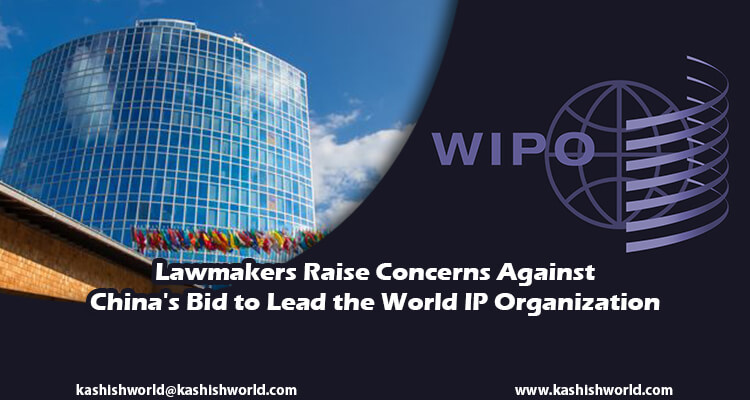
Four bipartisan lawmakers have recently raised concerns against China’s intent to lead the World Intellectual Property Organization (WIPO) at the United Nations.
In a letter penned to President Trump on 16th December 2019, Senate Minority Leader Chuck Schumer (D-N.Y.), Sen. Tom Cotton (R-Ark.), Reps. Jimmy Panetta (D-Calif.), and Mike Gallagher (R-Wis.) wrote that a China-led WIPO could endanger the economic security of the United States and threaten the Intellectual Property Rights (IPRs) and standards across the globe. The Congress members have urged President Trump to oppose China’s nomination for the next director-general at the WIPO and also encourage international partners to do the same. They also wrote that due to China’s persistent infringement of Intellectual Property Protection, including corporate espionage, trade secret theft, and forced transfer of technology, it is essential for the United States and its allies to stand firmly against this move.
The People’s Republic of China’s State Councilor and the Minister of Foreign Affairs formally nominated Binying Wang in mid-November to serve as the next director-general at the WIPO for the six-year term. As per the nomination letter and the corresponding CV submitted, Binying Wang received a bachelor’s degree from China’s Zhongnan University in English, Communication, and Transportation in the 1970s. She received a diploma in American Commercial Law in the 1980s from Columbia Law School in New York along with a master’s degree from the University of California, Berkeley’s law school, on U.S. law, including industrial property law. She joined WIPO in 1992 after spending a few years working for China’s State Administration for Industry and Commerce. Since then, Wang has served as the senior counselor of the Office of the Director-General and assistant director-general, among several other executive WIPO positions as well. In 2009, she was appointed as the deputy director-general of the organization for overseeing trademarks and designs – and is working with the same capacity even today. The nomination letter said that Wang is entirely capable of guiding the organization towards working for an effective, balanced, and well-defined international intellectual property system, along with meeting the expectations of all the WIPO member states.
The lawmakers, however, didn’t note Wang’s educational experience in the United States as well as the ongoing decades-long stint at the WIPO. They just argued against China leading the organization as its aggressive industrial policies incorporate various tactics and practices, which coerce the companies and business firms of the United States to transfer their IP and technology to domestic corporations of China with the effect of undermining the US economic leadership, innovation, and creativity. The lawmakers noted that the Trump administration has repeatedly raised similar concerns against China’s IP regime and also accused the nation of IP and trade secret theft on a grand scale. Furthermore, the Congress members also made a point of the fact that the Chinese telecommunications giant – Huawei – banned by the US leaders over fears that it is spying for the Chinese government, filed the maximum number of Patent Applications in 2018 with the WIPO. They wrote that it is not wise to go ahead with a regime ascend as the leader of global intellectual property policy that continues to undermine the rules-based system blatantly by failing to show respect for IPRs.
Nominations for the director-general election are open till 30th December 2019. China, Argentina, Ghana, Japan, Colombia, Singapore, and Kazakhstan have nominated their respective candidates so far. For nominating a candidate formally, WIPO will hold sessions in March 2020 and has plans of appointing the next director-general in May.

